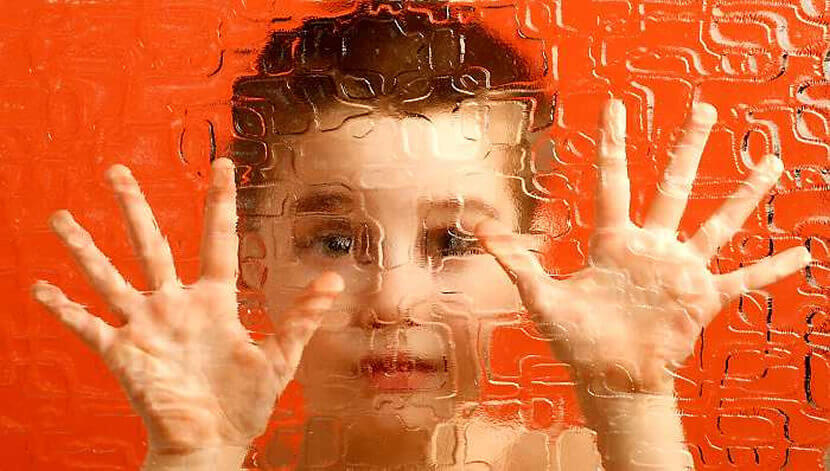Masked Depression: When the Body Speaks


Written and verified by the psychologist Gema Sánchez Cuevas
No depression is the same. Nor is one suffering ever the same as another. That’s why it’s often so difficult for health professionals to give adequate diagnoses. For instance, back pain, tachycardia, dizziness, and even allergies can hide deeper realities like masked depression. Indeed, this disorder can frequently go unnoticed or be treated inappropriately.
This often happens with children. That’s because, at such an early age, it’s extremely difficult for them to put into words what’s happening to them or traumatizing them. Nocturnal enuresis, headaches, and school problems could be clues to silent or masked depression in a child.
The elderly are also prone to this type of problem. Due to their advanced age, they find themselves in situations where pain, poor digestion, infections, and dizziness are more than common. However, they could be suffering from masked depression.
Therefore, you must always remember that your body is a true reflection of your inner world and your silent sufferings.

Masked depression, or somatoform depression
It’s said that almost ten percent of the people who go to their health centers for back problems, headaches, or other disorders are actually suffering from masked depression. Of that ten percent, only 50 percent of them receive a proper diagnosis.
The rest of them will begin an expensive journey of visits to specialists and it’s highly likely that the origin of their symptoms won’t be discovered. Furthermore, they might receive painkillers, anti-inflammatories, or other drugs that’ll only make their situation even worse.
Who’s most affected by masked depression?
Masked depression is said to be extremely common in children. For example, they might be diagnosed with hyperactivity, or the classic problem of nocturnal enuresis, which arises suddenly for no apparent reason. They also might develop feeding problems or changes in their character. These are all undoubted clues that there’s an underlying problem.
Nevertheless, this disorder doesn’t only occur in children and the elderly. In fact, there are many adults who go from one specialist to another without anyone finding the origin of their tachycardias. Or their digestive problems, or chronic fatigue. However, the blame shouldn’t always be apportioned to health professionals, and they shouldn’t be seen as incapable of diagnosing depression in a patient. Indeed, many patients refuse to acknowledge they have a problem.

Refusing to acknowledge the problem
There are many patients who resist being diagnosed with depression. They’re people who don’t connect well with their emotions and feelings. Personalities who don’t accept that there’s something happening to them and that there’s something wrong in their lives. In their inner world.
In these cases, the classic symptoms of ‘somatization’ appear. Furthermore, there’s another deeper aspect. It concerns the fact that, in our apparently advanced society, physical problems tend to be viewed more positively than psychological ones. It may seem surprising, but this is the case. Consequently, some people prefer to declare that they’re experiencing chronic back pain rather than admit that they’re suffering from depression.
As you probably know, it’s often easier to say that you have a headache than that you’ve had a horrible day at work. Because you actually feel lonely and sad. In fact, emotions aren’t only difficult to recognize, but also to talk about. Even though, without a doubt, recognizing them is the first step to healing them.
Hiding, being silent, disguising emotions or feelings always ends up translating into physical discomfort. In addition, over time, it’s highly likely that the original problem will end up becoming chronic.
The importance of diagnosis

Once people receive a proper diagnosis and accept that what they’re suffering from is depression, they immediately start to improve. With proper treatment and the strength of their own will, each step they take in dealing with these psychological problems reduces their physical ailments. This is extremely hopeful.
Masked depression is one of the most common problems in society today and is a challenge faced by many primary care professionals. Indeed, they constantly find themselves with the problem of working out if it’s a physical problem that the patient is suffering or a hidden depression. Because good health doesn’t always only involve a healthy diet and physical exercise.
Finally, good health begins each day with emotional well-being. With simple day-to-day happiness, and a motivation to drive dreams and projects. It isn’t always easy, but every effort to maintain emotional balance and happiness will be worth it.
Image Courtesy: Jennyfer K. Sometimes
No depression is the same. Nor is one suffering ever the same as another. That’s why it’s often so difficult for health professionals to give adequate diagnoses. For instance, back pain, tachycardia, dizziness, and even allergies can hide deeper realities like masked depression. Indeed, this disorder can frequently go unnoticed or be treated inappropriately.
This often happens with children. That’s because, at such an early age, it’s extremely difficult for them to put into words what’s happening to them or traumatizing them. Nocturnal enuresis, headaches, and school problems could be clues to silent or masked depression in a child.
The elderly are also prone to this type of problem. Due to their advanced age, they find themselves in situations where pain, poor digestion, infections, and dizziness are more than common. However, they could be suffering from masked depression.
Therefore, you must always remember that your body is a true reflection of your inner world and your silent sufferings.

Masked depression, or somatoform depression
It’s said that almost ten percent of the people who go to their health centers for back problems, headaches, or other disorders are actually suffering from masked depression. Of that ten percent, only 50 percent of them receive a proper diagnosis.
The rest of them will begin an expensive journey of visits to specialists and it’s highly likely that the origin of their symptoms won’t be discovered. Furthermore, they might receive painkillers, anti-inflammatories, or other drugs that’ll only make their situation even worse.
Who’s most affected by masked depression?
Masked depression is said to be extremely common in children. For example, they might be diagnosed with hyperactivity, or the classic problem of nocturnal enuresis, which arises suddenly for no apparent reason. They also might develop feeding problems or changes in their character. These are all undoubted clues that there’s an underlying problem.
Nevertheless, this disorder doesn’t only occur in children and the elderly. In fact, there are many adults who go from one specialist to another without anyone finding the origin of their tachycardias. Or their digestive problems, or chronic fatigue. However, the blame shouldn’t always be apportioned to health professionals, and they shouldn’t be seen as incapable of diagnosing depression in a patient. Indeed, many patients refuse to acknowledge they have a problem.

Refusing to acknowledge the problem
There are many patients who resist being diagnosed with depression. They’re people who don’t connect well with their emotions and feelings. Personalities who don’t accept that there’s something happening to them and that there’s something wrong in their lives. In their inner world.
In these cases, the classic symptoms of ‘somatization’ appear. Furthermore, there’s another deeper aspect. It concerns the fact that, in our apparently advanced society, physical problems tend to be viewed more positively than psychological ones. It may seem surprising, but this is the case. Consequently, some people prefer to declare that they’re experiencing chronic back pain rather than admit that they’re suffering from depression.
As you probably know, it’s often easier to say that you have a headache than that you’ve had a horrible day at work. Because you actually feel lonely and sad. In fact, emotions aren’t only difficult to recognize, but also to talk about. Even though, without a doubt, recognizing them is the first step to healing them.
Hiding, being silent, disguising emotions or feelings always ends up translating into physical discomfort. In addition, over time, it’s highly likely that the original problem will end up becoming chronic.
The importance of diagnosis

Once people receive a proper diagnosis and accept that what they’re suffering from is depression, they immediately start to improve. With proper treatment and the strength of their own will, each step they take in dealing with these psychological problems reduces their physical ailments. This is extremely hopeful.
Masked depression is one of the most common problems in society today and is a challenge faced by many primary care professionals. Indeed, they constantly find themselves with the problem of working out if it’s a physical problem that the patient is suffering or a hidden depression. Because good health doesn’t always only involve a healthy diet and physical exercise.
Finally, good health begins each day with emotional well-being. With simple day-to-day happiness, and a motivation to drive dreams and projects. It isn’t always easy, but every effort to maintain emotional balance and happiness will be worth it.
Image Courtesy: Jennyfer K. Sometimes
This text is provided for informational purposes only and does not replace consultation with a professional. If in doubt, consult your specialist.







